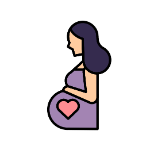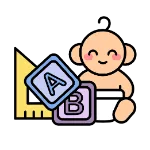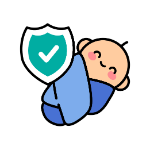
Paediatric
19 Questions To Ask Your Potential Paediatric Surgeon
10 min | Updated on 30-03-2023 by HappyPreggie
Are you an expectant parent looking for a paediatrician? Choosing the ideal paediatrician for your child can be one of the most important decisions any parent will make. If you're new to an area, you can start finding the right paediatrician weeks before the baby is born. At first, it may seem complicated and overwhelming, but there are many great tips available to help you narrow down your choices!
In this article, Dr Nada Sudhakaran, a Consultant Paediatric Surgeon & Urologist providing specialized children surgery based in Petaling Jaya and Kuala Lumpur, will answer some of the common questions you may have about paediatric surgeon.

Below are 19 questions you can ask your potential paediatric surgeon, answered by Dr Nada.
Dr Nada: Most patients I see do not require surgery. Only about 10% of new patients I see will require surgery, and the vast majority of these are for minor procedures.
Dr Nada: Surgery may not be the only option, and if it can be avoided or deferred, then that will be the best choice. Some conditions in children can be resolved with time, so I provide an honest discussion about every child with their parents.
Some conditions such as chronic constipation are usually treated with medications alone and almost all do well.
Dr Nada: The decision to perform every surgery is made on the balance that the benefit of performing surgery for the child outweighs doing no surgery and the risks of performing surgery.
Therefore, the surgery should give significant improvements in the child’s condition.
Dr Nada: I graduated from the University of Wales, UK in 1995. Subsequently, I obtained the basic surgical qualification, MRCS from Glasgow in the year 2000. I completed 2 years of surgical research at Oxford University before starting the Paediatric Surgical training programme in London.
Following the fellowship programme, I was awarded the FRCS in Paediatric Surgery in 2009 and the Completion of Certified Training in Paediatric Surgery by the General Medical Council, UK, and placed on the National Specialist Register UK.
I also worked In Australia for a couple of years and obtained the Fellow of the Australasian College of Surgeons in Paediatric Surgery (FRCS, Paediatric Surgery) and the Specialist Register there in Paediatric Surgery.
I am also on the specialist Register in Paediatric Surgery in Malaysia, making me the only one in the world with specialist registration in Paediatric Surgery in the UK, Australia and Malaysia.
 (image credits to TheStar)
(image credits to TheStar)
I was an Associate Professor in Paediatric Surgery at the University of Malaya when I first returned from the UK where I was training paediatric surgeons, especially in the skills of Keyhole or minimally invasive surgery.
Altogether I have been a surgeon since 1997, and specifically in Paediatric Surgery since 1999.
I am now a trainer in the field of minimally invasive surgery (laparoscopic and thoracoscopic) in Malaysia and internationally.
Dr Nada: With over 20 years of experience, I have a lot of experience with most paediatric surgical conditions. Being a trainer has allowed me to critically analyse every condition thoroughly both on the academic/ knowledge front, and also performing surgery efficiently with minimal trauma, mostly by using the keyhole surgery approach and teaching and transferring these skills to my trainees.
With every surgery, I will offer the least traumatic procedure, and this usually uses the keyhole surgery as the first surgical option.
Dr Nada: My success rate is pretty good at over 99.9% for most procedures.
 (image credits to Dr Nada Surgeon)
(image credits to Dr Nada Surgeon)
However, there is one condition called hypospadias where, like most surgeons throughout the world, I, too, have a high complication rate, both minor and major. My success rate for this particular surgical procedure is about 85%.
Dr Nada: The most common complications are bleeding or infection, often easily treated.
For Hypospadias surgery, there could be fistula (small leak) or stricture (narrowing of the opening).
Every type of surgery has its own specific complications other than generic bleeding and infection. For each surgery performed, a thorough discussion takes place, and consent for the procedure is obtained from parents before the surgery happens.
Dr Nada: As mentioned before, the decision for surgery is made only if it's necessary and done at the appropriate time.
Some conditions may require emergency surgery, even for a newborn, if the condition requires it. There are a variety of conditions and severity of illnesses in children that I face, and their ages range from newborn or even premature babies up to someone of 18 years old. Obviously, sicker children have higher risks when going for surgeries.
 (image credits to Norton Children’s)
(image credits to Norton Children’s)
Anaesthesia these days is extremely safe, even for newborn babies. As mentioned before, for 99% of the surgeries I do, the risks are minimal.
The very rare sick child or newborn baby may carry a higher risk for surgery, and these risks will be discussed with their parents thoroughly before every surgery.
Dr Nada: In my experience, it is rare for something untoward to happen during surgery.
Usually, the problem is addressed in the acute situation, and what happens during surgery is discussed with the child’s parents.
If I were to find something unusual during surgery and require further discussion and consent from parents, I would stop the surgery, discuss it with the child’s parents and then proceed with the decision of that discussion.
Dr Nada: It is essential to pick your surgeon carefully. For your child, do look for a Paediatric surgeon (not an adult general surgeon) who is experienced in the field.
You will have an idea of your surgeon's experience and often a gut feeling from your rapport with your surgeon. In any situation, especially for children, surgery is best done once and done well, so there are no problems with your child for the rest of their life.
 (image credits to HealthEngine)
(image credits to HealthEngine)
A skilled paediatric surgeon should be able to make good progress with your child’s condition, so do avoid adult surgeons for even common conditions such as appendicectomie for hernias, where the risk of complications if in the wrong hands are greater.
If the surgery fails, then reassessment is made to decide if repeat surgery is required.
Dr Nada: When we assess the outcomes of surgery, we like to see that function is as normal as we can get it after surgery, and secondly, the appearance should be great too.
If something does not turn out as expected, there may be non-surgical remedies that can prevent issues with function or appearance. However, in rare cases, there may be a need for surgical repairs.
Dr Nada: Most paediatric surgical conditions are conducted as a day procedure. However, for babies under 3 months of age, we need to monitor them overnight after the surgery, for the same surgery.
For complex surgeries which are done by the keyhole method, children on average stay 2 days in hospital post-surgery, but for some specific surgeries such as anorectal malformation reconstruction, the child usually stays in for 5 days post-surgery.
Dr Nada: If the condition is not congenital (found at birth), then most insurance companies in Malaysia would cover the cost, for example surgery for appendicitis. However, some employers’ insurance would cover surgical costs for congenital conditions as well.
There are some insurances that, when taken before your child is born, may cover for a number of surgical conditions if found in the child when born.
The costs for surgery vary, depending on if it’s a complex surgery requiring many days in hospital or even ICU stays (e.g.: surgery on the lung), which may come to RM25K-RM50K, or for most day surgery procedures cost about RM5000.
Even these costs can further be reduced to as low as RM2500 (under general anaesthesia) at some selected hospitals where I visit too.
Dr Nada: In my experience, the total cost for surgery varies according to the hospital and the type of surgery.
In general, the larger hospitals in the Klang Valley are the most expensive compared to the smaller hospitals in the same area or even outside Klang Valley. The difference between the cost of surgery at the various big hospitals in the Klang Valley is almost identical.
However, as I perform most surgeries by the keyhole (laparoscopic or thoracoscopic) method, the overall cost of surgery may be 5% to 10% higher.
This is clearly the better option for surgery in terms of trauma, pain, recovery, and scar appearance for your child, compared to the old-fashioned large cuts.
 (image credits to Verywell Health)
(image credits to Verywell Health)
In this day and age, to be offered an open surgery when there is a better keyhole method is akin to being sold a Nokia 3110 when there are more advanced smartphones available.
The cost difference between these 2 methods is usually determined by the days in hospitals and hospital costs since the open surgery procedure will need more days spent in the hospital.
For complex and long surgeries, your child may be on stronger painkillers given by the intravenous method, for 1 to 2 days post-operatively.
Most kids following keyhole surgery are up and about the next day with simple analgesia they take orally.
Dr Nada: Usually, the staff nurses do regular assessment postoperatively for pain and general observation on your child following surgery.
Parents have a buzzer to press to request for an assessment or additional pain relief if their child requires more analgesia if the planned analgesia is insufficient.
The general observation will monitor the child’s temperature, heart rate, blood pressure and oxygen saturation, which will indicate if, rarely, the child has any issues with the anaesthesia.
Dr Nada: For most surgery which is done as a day procedure, only one or 2 follow-up appointments are required one week and maybe 3 months afterwards. The duration of these appointments is anything from 5 to 10 minutes.
Following more complex surgery, the first appointment is again, usually after 1 week after discharge. Subsequent follow-ups are done every 2 to 3 months up to a year or until your child has no issues.
Dr Nada: Yes, of course. I am always available if there are any issues with my patients.
Dr Nada: Most parents like to keep their child’s hospital admission private.
However, when there is a complex procedure that is required for a child who may need long-term care, e.g. anorectal malformation or Hirschsprung's disease, if requested, I may introduce the new parents to experienced parents if they agree to be contacted.
By taking the time to find a reliable paediatrician, you can ensure that your child receives the best care possible. We hope these tips helped answer some of the concerns you may have. If we have missed anything, feel free to drop us a message. At the same time, get more answers on various pregnancy and parenting-related topics in our blog.
Visit Dr Nada Child Surgeon to schedule an appointment or read more articles on his experience and journey as a paediatrician.
In this article, Dr Nada Sudhakaran, a Consultant Paediatric Surgeon & Urologist providing specialized children surgery based in Petaling Jaya and Kuala Lumpur, will answer some of the common questions you may have about paediatric surgeon.
Below are 19 questions you can ask your potential paediatric surgeon, answered by Dr Nada.
Q1: Do you treat all kinds of problems with surgery or are some problems treated with other procedures?
Dr Nada: Most patients I see do not require surgery. Only about 10% of new patients I see will require surgery, and the vast majority of these are for minor procedures.
Q2: Are there alternatives to the surgery, and if so, what are they?
Dr Nada: Surgery may not be the only option, and if it can be avoided or deferred, then that will be the best choice. Some conditions in children can be resolved with time, so I provide an honest discussion about every child with their parents.
Some conditions such as chronic constipation are usually treated with medications alone and almost all do well.
Q3: What is the improvement expected from the surgery?
Dr Nada: The decision to perform every surgery is made on the balance that the benefit of performing surgery for the child outweighs doing no surgery and the risks of performing surgery.
Therefore, the surgery should give significant improvements in the child’s condition.
Q4: What are your qualifications, and how long have you been in surgical practice?
Dr Nada: I graduated from the University of Wales, UK in 1995. Subsequently, I obtained the basic surgical qualification, MRCS from Glasgow in the year 2000. I completed 2 years of surgical research at Oxford University before starting the Paediatric Surgical training programme in London.
Following the fellowship programme, I was awarded the FRCS in Paediatric Surgery in 2009 and the Completion of Certified Training in Paediatric Surgery by the General Medical Council, UK, and placed on the National Specialist Register UK.
I also worked In Australia for a couple of years and obtained the Fellow of the Australasian College of Surgeons in Paediatric Surgery (FRCS, Paediatric Surgery) and the Specialist Register there in Paediatric Surgery.
I am also on the specialist Register in Paediatric Surgery in Malaysia, making me the only one in the world with specialist registration in Paediatric Surgery in the UK, Australia and Malaysia.
I was an Associate Professor in Paediatric Surgery at the University of Malaya when I first returned from the UK where I was training paediatric surgeons, especially in the skills of Keyhole or minimally invasive surgery.
Altogether I have been a surgeon since 1997, and specifically in Paediatric Surgery since 1999.
I am now a trainer in the field of minimally invasive surgery (laparoscopic and thoracoscopic) in Malaysia and internationally.
Q5: How many times have you done this procedure?
Dr Nada: With over 20 years of experience, I have a lot of experience with most paediatric surgical conditions. Being a trainer has allowed me to critically analyse every condition thoroughly both on the academic/ knowledge front, and also performing surgery efficiently with minimal trauma, mostly by using the keyhole surgery approach and teaching and transferring these skills to my trainees.
With every surgery, I will offer the least traumatic procedure, and this usually uses the keyhole surgery as the first surgical option.
Q6: What is your success rate?
Dr Nada: My success rate is pretty good at over 99.9% for most procedures.
However, there is one condition called hypospadias where, like most surgeons throughout the world, I, too, have a high complication rate, both minor and major. My success rate for this particular surgical procedure is about 85%.
Q7: What are the possible complications of the surgery?
Dr Nada: The most common complications are bleeding or infection, often easily treated.
For Hypospadias surgery, there could be fistula (small leak) or stricture (narrowing of the opening).
Every type of surgery has its own specific complications other than generic bleeding and infection. For each surgery performed, a thorough discussion takes place, and consent for the procedure is obtained from parents before the surgery happens.
Q8: What is the complication rate for performing this surgery on children of my child’s age and weight range?
Dr Nada: As mentioned before, the decision for surgery is made only if it's necessary and done at the appropriate time.
Some conditions may require emergency surgery, even for a newborn, if the condition requires it. There are a variety of conditions and severity of illnesses in children that I face, and their ages range from newborn or even premature babies up to someone of 18 years old. Obviously, sicker children have higher risks when going for surgeries.
Anaesthesia these days is extremely safe, even for newborn babies. As mentioned before, for 99% of the surgeries I do, the risks are minimal.
The very rare sick child or newborn baby may carry a higher risk for surgery, and these risks will be discussed with their parents thoroughly before every surgery.
Q9: What happens if something goes wrong during surgery?
Dr Nada: In my experience, it is rare for something untoward to happen during surgery.
Usually, the problem is addressed in the acute situation, and what happens during surgery is discussed with the child’s parents.
If I were to find something unusual during surgery and require further discussion and consent from parents, I would stop the surgery, discuss it with the child’s parents and then proceed with the decision of that discussion.
Q10: What is the possible outcome if the surgery fails to correct my child’s condition?
Dr Nada: It is essential to pick your surgeon carefully. For your child, do look for a Paediatric surgeon (not an adult general surgeon) who is experienced in the field.
You will have an idea of your surgeon's experience and often a gut feeling from your rapport with your surgeon. In any situation, especially for children, surgery is best done once and done well, so there are no problems with your child for the rest of their life.
A skilled paediatric surgeon should be able to make good progress with your child’s condition, so do avoid adult surgeons for even common conditions such as appendicectomie for hernias, where the risk of complications if in the wrong hands are greater.
If the surgery fails, then reassessment is made to decide if repeat surgery is required.
Q11: If something goes wrong, can you fix it again later if I need another operation?
Dr Nada: When we assess the outcomes of surgery, we like to see that function is as normal as we can get it after surgery, and secondly, the appearance should be great too.
If something does not turn out as expected, there may be non-surgical remedies that can prevent issues with function or appearance. However, in rare cases, there may be a need for surgical repairs.
Q12: How long will my child be in the hospital?
Dr Nada: Most paediatric surgical conditions are conducted as a day procedure. However, for babies under 3 months of age, we need to monitor them overnight after the surgery, for the same surgery.
For complex surgeries which are done by the keyhole method, children on average stay 2 days in hospital post-surgery, but for some specific surgeries such as anorectal malformation reconstruction, the child usually stays in for 5 days post-surgery.
Q13: What will it cost, and do you accept my insurance?
Dr Nada: If the condition is not congenital (found at birth), then most insurance companies in Malaysia would cover the cost, for example surgery for appendicitis. However, some employers’ insurance would cover surgical costs for congenital conditions as well.
There are some insurances that, when taken before your child is born, may cover for a number of surgical conditions if found in the child when born.
The costs for surgery vary, depending on if it’s a complex surgery requiring many days in hospital or even ICU stays (e.g.: surgery on the lung), which may come to RM25K-RM50K, or for most day surgery procedures cost about RM5000.
Even these costs can further be reduced to as low as RM2500 (under general anaesthesia) at some selected hospitals where I visit too.
Q14: What is the cost of surgery in comparison to other clinics or hospitals?
Dr Nada: In my experience, the total cost for surgery varies according to the hospital and the type of surgery.
In general, the larger hospitals in the Klang Valley are the most expensive compared to the smaller hospitals in the same area or even outside Klang Valley. The difference between the cost of surgery at the various big hospitals in the Klang Valley is almost identical.
However, as I perform most surgeries by the keyhole (laparoscopic or thoracoscopic) method, the overall cost of surgery may be 5% to 10% higher.
This is clearly the better option for surgery in terms of trauma, pain, recovery, and scar appearance for your child, compared to the old-fashioned large cuts.
In this day and age, to be offered an open surgery when there is a better keyhole method is akin to being sold a Nokia 3110 when there are more advanced smartphones available.
The cost difference between these 2 methods is usually determined by the days in hospitals and hospital costs since the open surgery procedure will need more days spent in the hospital.
Q15: How much pain will the operation cause my child? Can you explain how to control this pain?
Dr Nada: With the keyhole method, the pain should be minimal.For complex and long surgeries, your child may be on stronger painkillers given by the intravenous method, for 1 to 2 days post-operatively.
Most kids following keyhole surgery are up and about the next day with simple analgesia they take orally.
Q16: Who is going to monitor my child while they are in the hospital for signs of pain or complications from the anaesthesia?
Dr Nada: Usually, the staff nurses do regular assessment postoperatively for pain and general observation on your child following surgery.
Parents have a buzzer to press to request for an assessment or additional pain relief if their child requires more analgesia if the planned analgesia is insufficient.
The general observation will monitor the child’s temperature, heart rate, blood pressure and oxygen saturation, which will indicate if, rarely, the child has any issues with the anaesthesia.
Q17: How often will my child need to see you for follow-up visits, and how long will these visits last?
Dr Nada: For most surgery which is done as a day procedure, only one or 2 follow-up appointments are required one week and maybe 3 months afterwards. The duration of these appointments is anything from 5 to 10 minutes.
Following more complex surgery, the first appointment is again, usually after 1 week after discharge. Subsequent follow-ups are done every 2 to 3 months up to a year or until your child has no issues.
Q18: Will our family be able to contact you when we have questions about what is happening with our child in the hospital?
Dr Nada: Yes, of course. I am always available if there are any issues with my patients.
Q19: Can you give me a list of satisfied patients that I can contact as a reference?
Dr Nada: Most parents like to keep their child’s hospital admission private.
However, when there is a complex procedure that is required for a child who may need long-term care, e.g. anorectal malformation or Hirschsprung's disease, if requested, I may introduce the new parents to experienced parents if they agree to be contacted.
By taking the time to find a reliable paediatrician, you can ensure that your child receives the best care possible. We hope these tips helped answer some of the concerns you may have. If we have missed anything, feel free to drop us a message. At the same time, get more answers on various pregnancy and parenting-related topics in our blog.
Visit Dr Nada Child Surgeon to schedule an appointment or read more articles on his experience and journey as a paediatrician.
Join the largest support network for family health and well-being. Ready to get started?
Get started
















